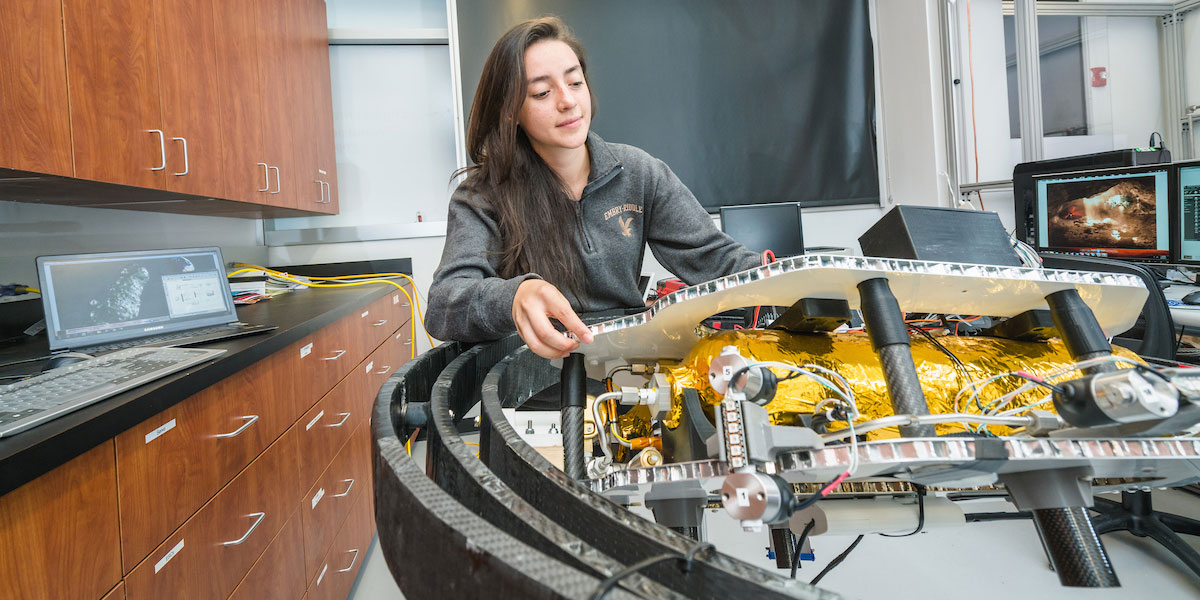Document Type
Conference Proceeding
Publication/Presentation Date
1-18-2010
Abstract/Description
The next 12 months will be an exciting time of growth in graduate aviation studies at Embry-Riddle Aeronautical University's Daytona Beach, FL campus. Beginning in Fall Semester 2009, a new Area of Concentration (AOC) in Aviation Meteorology will be added to the Master of Science in Aeronautics (MSA) program, and the new Doctoral program in Aviation will be starting in January 2010. The Aviation Meteorology AOC adds a crucial specialty to the existing MSA options in Air Traffic Management, Aviation/Aerospace Education Technology, Aviation/Aerospace Management, Aviation/Aerospace Operations, and Aviation/Aerospace Safety Systems.
The Aviation Meteorology AOC is designed to be a cross-disciplinary program that will be very important as we enter the Next Generation Air Transportation System (NextGen) era. In order to make the transition from today's operations in which critical functions such as weather and air traffic control are largely separate, to the NextGen era with its collaborative decision-making and probabilistic decision assistance tools, people are needed who can be equally conversant and comfortable across multiple functional areas—precisely the types of individuals we are aiming to produce with this program. The NextGen concepts of Weather/Air Traffic Management Integration, Weather Technology in the Cockpit, Trajectory Based Operations, and Collaborative Decision-making will require professionals trained to think outside of traditional “stove-piped” functions. The market for individuals with cross-disciplinary graduate training in both meteorology and aviation will expand as the Federal Government, industry, and academia build the NextGen system over the next 15 years.
The AOC in Aviation Meteorology revolves around a four-course sequence consisting of a graduate survey course in meteorology, an advanced aviation meteorology course, a research seminar that focuses on special topics, and a choice of dual-credit 400-level courses in applied meteorology such as statistical applications. Additionally, students will have the option of a six-credit M.S. thesis, which will allow them to work alongside graduate faculty and industry partners who are doing cutting-edge research, so that a graduate from this AOC could have as many as half of his/her credits in advanced aviation meteorology by the time the program is completed. Initial response from the student body has been enthusiastic, as evidenced by an experimental graduate seminar in Weather and Air Traffic Integration this summer that drew students with backgrounds in commercial and private aviation, applied meteorology, and engineering physics.
Sponsorship/Conference/Institution
14th Conference on Aviation, Range, and Aerospace Meteorology
Location
Atlanta, GA
Scholarly Commons Citation
Lanicci, J. M., & Roberts, E. A. (2010). The New Aviation Meteorology Specialization in the Graduate Aeronautics Program at Embry-Riddle. Retrieved from https://commons.erau.edu/db-aviation-graduate-studies/8
Included in
Aviation Commons, Educational Assessment, Evaluation, and Research Commons, Meteorology Commons

